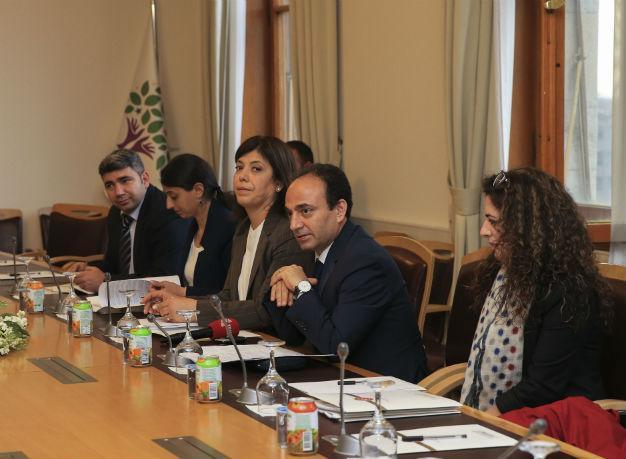Opposition parties criticize law enforcement commission draft
ANKARA

AA photo
The opposition Republican People’s Party (CHP) and Peoples’ Democratic Party (HDP) have harshly criticized a draft bill to establish a supervisory commission to oversee law enforcement officers’ compliance with the law which was opened for discussion on April 27, as well as its formation within the Interior Ministry.
Speaking on behalf of his party, Osman Baydemir, an HDP deputy in the southeastern province of Şanlıurfa, said the formation of the commission was being falsely portrayed as a reform and the commission, which would be formed by high ranking civil servants, would not meet the required needs.
While agreeing with the need for such a commission to be formed, the CHP on the other hand reacted to the ruling Justice and Development Party’s (AKP) “approach” to the draft.
Discussing the draft, Murat Bakan, a CHP deputy from the Aegean province of İzmir, said forming such a commission to enable effective supervision and civil monitoring of law enforcement officers was important.
Bakan said it would be wrong to expect law enforcement services to meet “European standards” without raising the living standards of officers, adding officers’ wages and social rights were far behind European standards.
Bakan, however, said that their criticism of the draft was about the AKP’s “approach,” saying the draft should pass because it was prevalent in modern countries and because “our people deserve it,” not because it was “enforced.”
Bakan added that the draft was being rushed and “if it will be voted on in its current state” they will vote no. Gürsel Erol, a CHP deputy from the eastern province of Tunceli, said the commission should be civil and NGOs should be represented in it.
The draft suggested the commission would be led by the Interior Ministry’s undersecretary and have seven members who would work to enhance the law enforcement complaint system as well as make it function transparently, improve its credibility, and centralize the recording of processes initiated against law enforcement officers for their alleged crimes and offenses.
